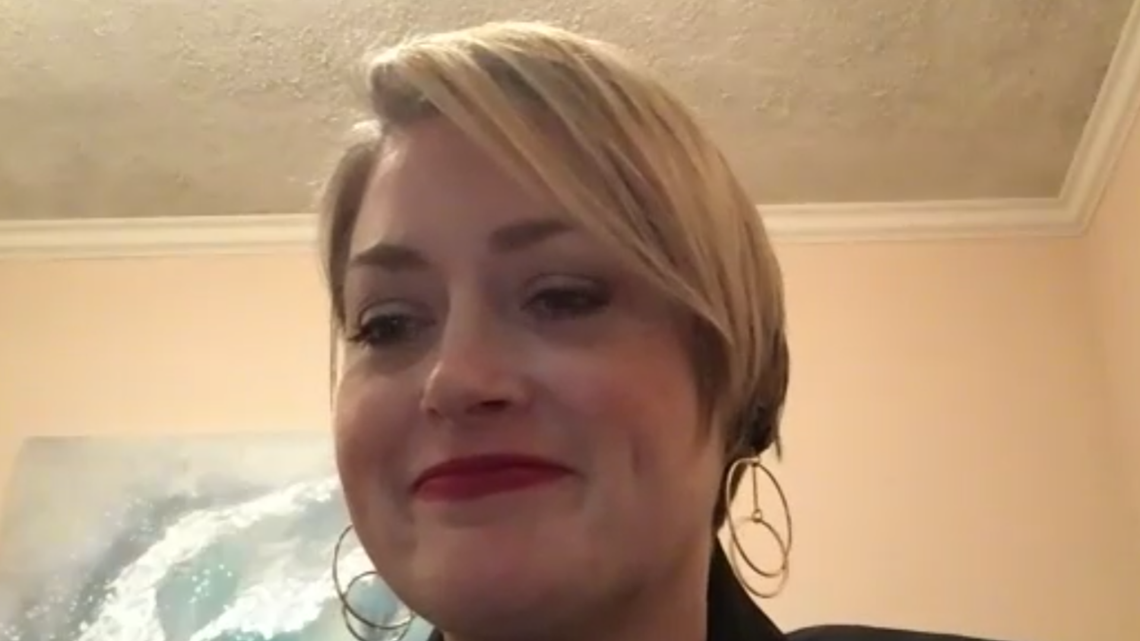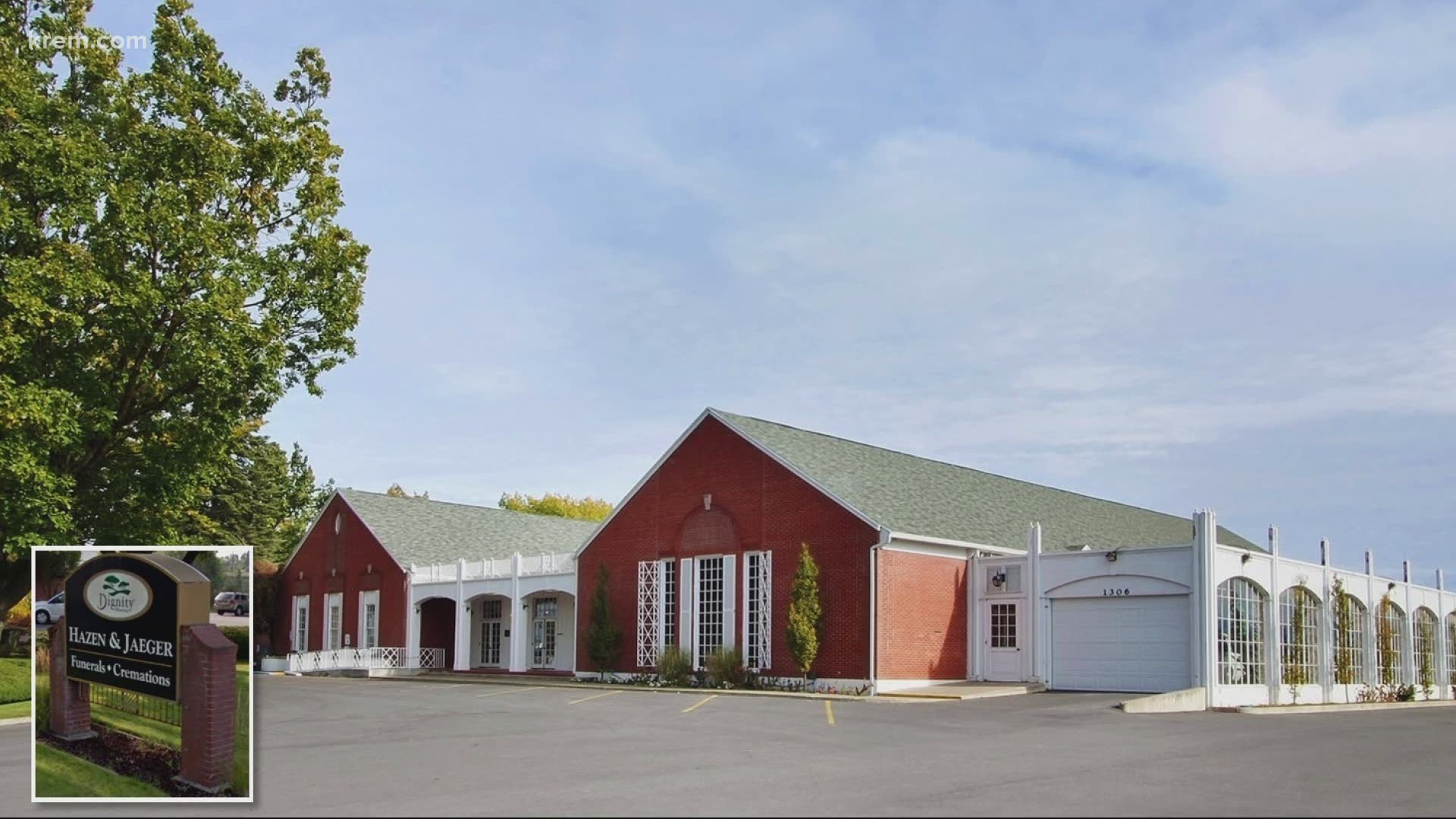SPOKANE, Wash — Coronavirus restrictions in Washington state have changed the way people are saying goodbye to loved ones who passed away.
Since the start of the COVID-19 pandemic, Governor Jay Inslee has restricted large gatherings across the state. Inslee’s latest reopening plan, that goes into effect on Jan. 11, says in Phase 1 funeral services are limited to no more than 30 people and indoor receptions, wakes or similar gatherings in conjunction with the services are prohibited.
These restrictions are also changing the way funeral directors do their jobs and help people grieve. It’s also taking an emotional toll.
Leila Bradish has been in the funeral industry for the last decade. She currently manages three funeral homes in the Spokane area: Ball and Dodd Funeral Home, Hazen and Jaeger Valley Funeral Home and Thornhill Valley Chapel.


Bradish said she got into the industry because she has a very caring spirit.
“I knew that I could take care of people and give them guidance at a really difficult time,” she said. “And I fell in love with the industry when I started looking into it. This is a career where you get an emotional paycheck, and every day that I go home, I know that I made a difference, a positive difference in in somebody's life.”
The coronavirus pandemic has greatly changed the industry Bradish fell in love with. She said sometimes it was hard to keep up with all the regulations because they seemed to be changing on a daily or weekly basis.
“There were times when we were not allowed to have funerals at all,” she explained. “There were times that we could have 10 people in our buildings.”
Bradish said she and her staff have had a difficult time helping families who have lost someone.
“It's very hard to tell families that no, you can't have a gathering to celebrate your loved one's life or to say goodbye,” she said.
Many of these families, she said, have not been able to be with their loved ones before their passing.
“While they were dying, they are not able to go into nursing homes are not even able to go to the hospitals. And it's devastating,” she said. “We have had families that after their loved one passed away, we will hold a visitation for small amount of family members. And we've had people in our buildings crying, just saying they haven't seen their mom in over five months. And this is the first time that they're seeing her. It's heartbreaking.”
To help these families grieve, Bradish and her staff have gotten creative. They’ve livestreamed services, created slideshows and sent them out to family members on flash drives. Bradish said anything they can make happen for these families, they do it. They’re even making a virtual platform to help families make funeral arrangements.
“It does take a toll because our funeral directors are here to care for people and to guide them through a difficult time,” she said. “And in most cases, we are literally holding people's hands and a literal shoulder to cry. On, and now, we, you know, can't hug people. And those things are sad. There's a loss of personal connection that people desire.”
Bradish said while the business has seen an increase in deaths during the pandemic, they aren’t necessarily busier than previous years because they are so limited on the amount of services they can provide.
She said some families of COVID-19 patients who have passed told her they feel there’s a stigma.
“Even telling their friends and family that their loved one died with COVID-19, whether it was of COVID-19 or with COVID-19,” she said. “And there's there's been a negative stigma to that.”

